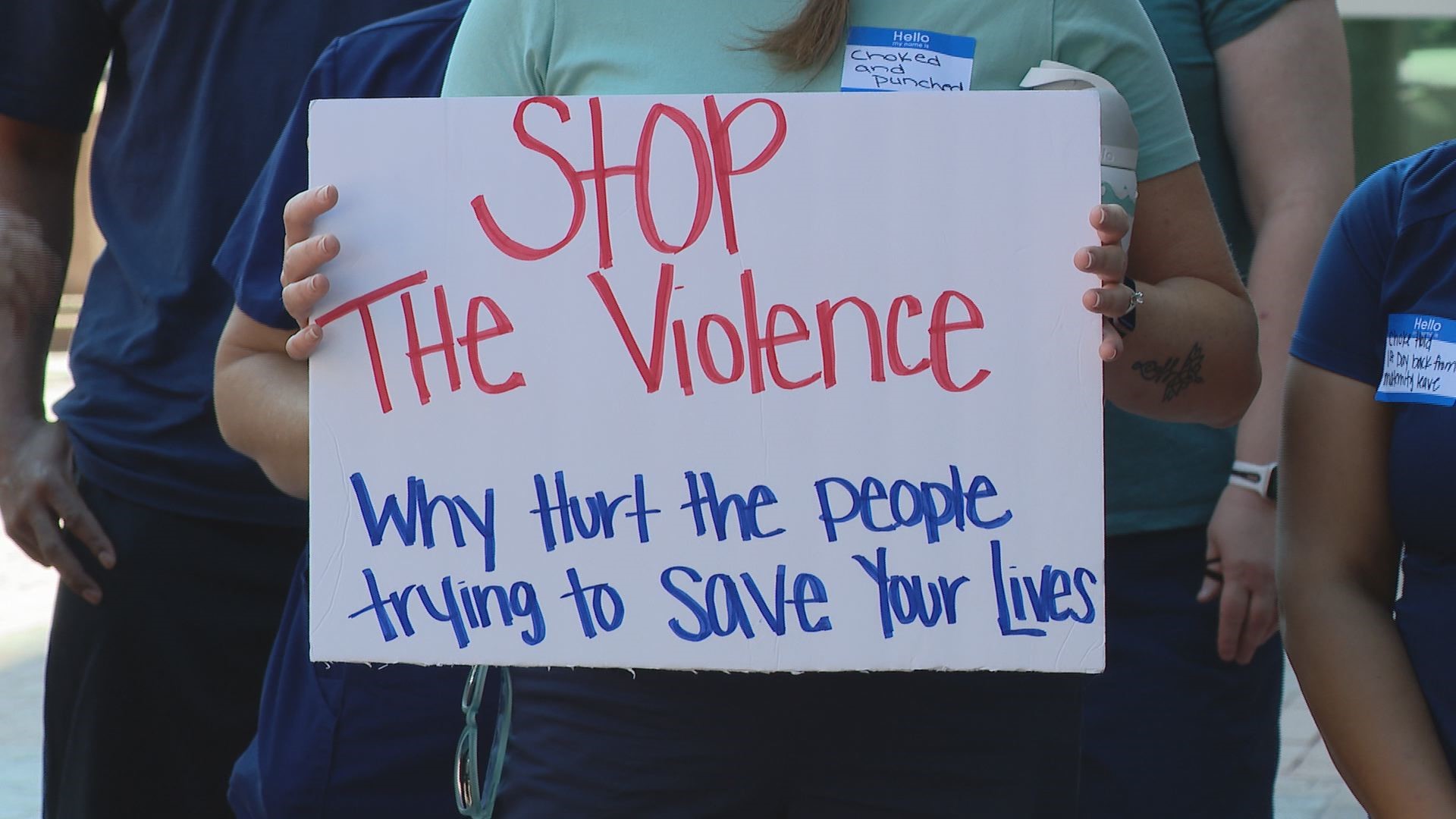ATLANTA — Ashley Blackmon has 20 years of healthcare experience. She said violence targeting healthcare workers is not new, but it is increasing.
She's now the president of the United Advanced Practice Registered Nurses of Georgia. Blackmon said healthcare workers experience some form of violence at a daily rate.
"It's terrifying. You are scared for yourself and for those around you," Blackmon told 11Alive. "Healthcare is always where you meet he patient where they're at their sickest and weakest, and where their family is at their most stressed and vulnerable. It has always been a volatile place."
The longtime nurse said a patient tried to hit her with medical equipment, and others have reportedly tried to strangle doctors with their own stethoscopes.
A Centers for Disease Control and Prevention employee, along with two healthcare workers, were among the five people shot last week in Atlanta's most recent mass shooting at a Northside Hospital medical facility in Midtown. The suspected gunman remains in custody.
Blackmon said unhealthy coping skills, a lack of adequate mental healthcare and stress have all caused a rise in violence targeting healthcare workers. The U.S. Bureau of Labor Statistics tracked healthcare as the top private sector for work injuries in 2021. Matt Caseman, CEO of the Georgia Nurses Association, said this comes as an already-strained healthcare system deals with dwindling workers.
"Some people get very aggravated, just in a bad state of mind," Caseman said. "Every hour, two nurses are assaulted. Nurses are five times more likely to be assaulted than your average worker. It's unfortunate, but nurses shouldn't have to deal with this kind of level of assault."
Last week, Georgia Gov. Brian Kemp signed a bill aimed at protecting healthcare workers. It sets stronger penalties for those who assault them and allows hospital systems to form their own police force.
"It's certainly not going to stem the entire tide, but I think it's one piece to say let's bring awareness by saying this needs to have stronger consequences," Blackmon said.

